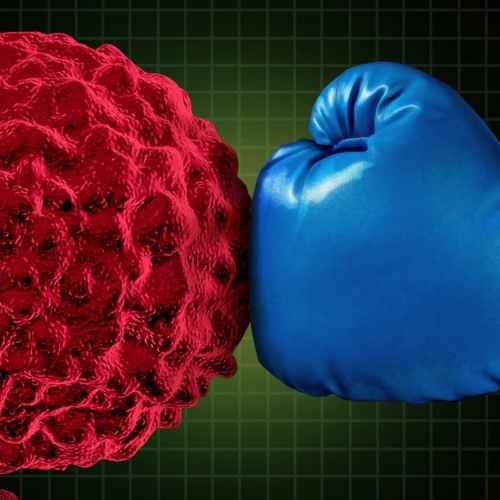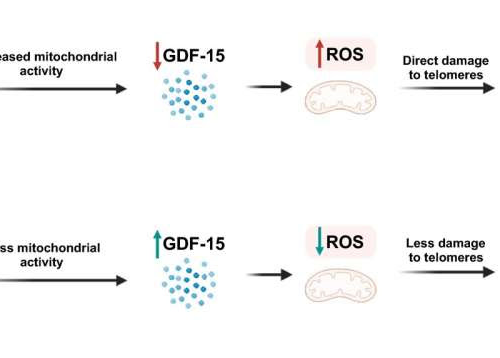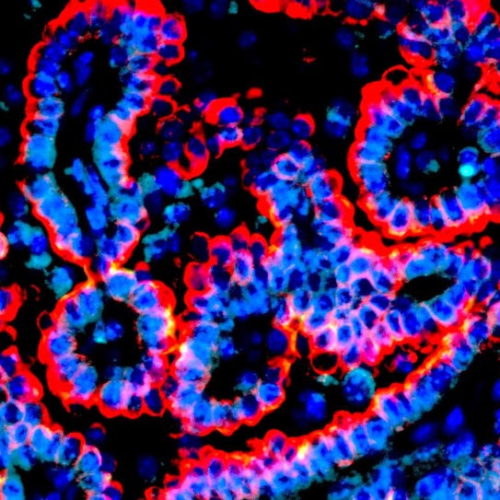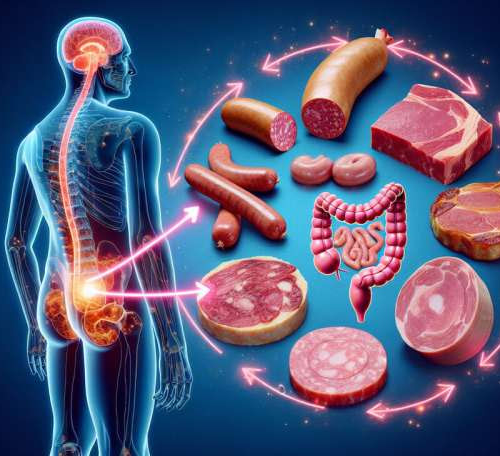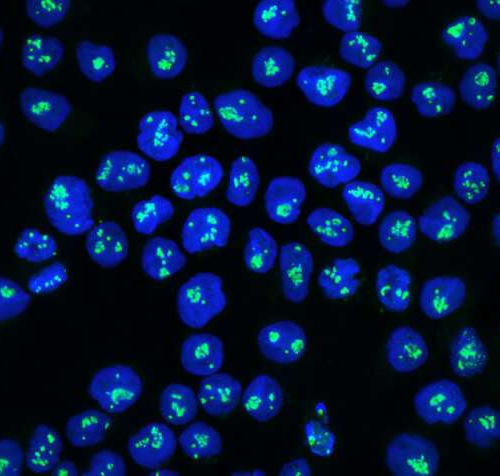By Paul McClureJuly 02, 2024 A novel combination treatment for advanced prostate cancer has been granted Fast Track status by the FDADepositphotos The US Food and Drug Administration (FDA) has green-lit the fast-tracking of an innovative personalized treatment for advanced prostate cancer following a promising clinical trial where the cancer disappeared completely in almost 40%...
Category: <span>Cancer</span>
RARE LIVER CANCER HAS SURPRISING ORIGINS
JUNE 24TH, 2024POSTED BY ROCKEFELLER UNIVERSITY A microscopy image of single cell spatial transcriptomics of FLC tumor cells (red) and stellate cells (green); the latter generates fibrous bands of collagen in response to the FLC cells. (Credit: Rockefeller) TAGS : CANCERLIVERSUNIVERSITY : ROCKEFELLER UNIVERSITY New research sheds light on a rare form of cancer called...
New discovery explains why lean people are more likely to die from MAFLD
JUNE 25, 2024 by Westmead Institute for Medical Research Proposed model for the differential mortality outcomes between patients who are lean and non-lean with MAFLD. Credit: Hepatology International (2024). DOI: 10.1007/s12072-024-10701-6A world-first research discovery from the Storr Liver Center at The Westmead Institute for Medical Research (WIMR) has identified why lean people with metabolic dysfunction-associated...
Chromatin openness sheds new light on prostate cancer plasticity
NEWS RELEASE 3-JUN-2024 Peer-Reviewed PublicationUNIVERSITY OF EASTERN FINLAND Treatment resistance caused by cancer cell plasticity constitutes a major challenge in the treatment of prostate cancer. Published in Nucleic Acids Research, a recent study from the University of Eastern Finland Institute of Biomedicine suggests that the SIX2 protein may be a possible factor underlying increased plasticity...
Healing cells going rogue in common lung cancer
Researchers uncover lung adenocarcinoma’s early roots, tracing the cancer back to a specific cell type. These insights offer new hope for detection and prevention. Produced by Nature Research Custom MediaMD Anderson Markers of alveolar intermediate cells, termed KRT8+ alveolar cells (KACs), identified by Kadara and colleagues within a lung tumour. KRT8 in shown in red,...
Large-scale study explores genetic link between colorectal cancer and meat intake
by Keck School of Medicine of USC Credit: AI-generated imageIn one of the largest ever gene-environment interaction studies of red meat and colorectal cancer, which explored the impact of red meat consumption on a person’s cancer risk based on their genotype, researchers have identified two genetic markers that may help explain the association between the...
Protein discovery sparks treatment hope for aggressive cancer
by Walter and Eliza Hall Institute of Medical Research machinery shown by the fibrillarin protein (green) in the nucleus (blue) that stimulates the nucleolar stress response and initiates leukaemia cell death. Credit: Peter MacResearchers have found a new way to potentially treat one of the most common forms of acute lymphoblastic leukemia. The study, led...
Study finds worsening metabolic syndrome increases the risk of developing cancer
by Wiley Credit: Pavel Danilyuk from PexelsNew research indicates that individuals with persistent and worsening metabolic syndrome—which encompasses conditions such as high blood pressure, elevated blood sugar, excess abdominal fat, and abnormal cholesterol—face an elevated risk of developing various types of cancer. The findings are published in a paper titled “The association of metabolic syndrome...
Drug combo marks advance against bladder cancer
by Ernie Mundell A cancer drug duo more than doubled the survival of people battling the most common form of advanced bladder cancer, trial results show. Patients who took a combo of meds called EV+P—enfortumab vedotin and pembrolizumab (Keytruda)—had an average of 31.5 months survival, compared to just over 16 months for those on standard...
Researchers discover an RNA molecule that could be used as a therapeutic target against cancer cells
by Centro de Investigación Médica Aplicada (CIMA) Universidad de Navarra Replication stress induces lncRNAs associated to replicating chromatin. a (Top) Mechanism of action of hydroxyurea (HU) RNR: ribonucleotide reductase. (Bottom) Immunoblot analysis HCT116 cells treated with HU 1 mM for 8 h followed by 3 h recovery shows the reversible effect of HU on replication stress markers p-ATR,...

